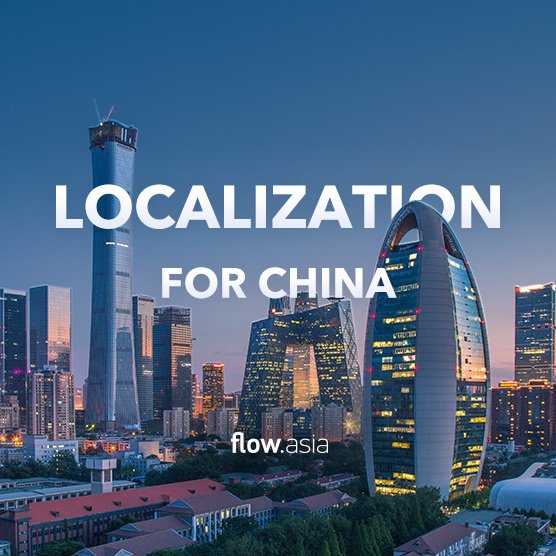
Real Localization
Is Building Connections
Every year more foreign brands enter China, connecting companies with eager customers. How did these companies become so successful? What mistakes were made along the way?
Localization has grown even more nuanced since the early days of the internet and it is not enough to simply translate your content. Learn from the experiences of other brands that took the plunge to try and localize their brands in China!

Literally. According to Statista’s 2021 Q1 report, China has surpassed America’s 312 million users to reach 854 million users and this continues to grow at exceptional rates.
The majority of Chinese internet users only access the internet through their smartphones. What APPs are popular? When do consumers view the most content? What content do they connect with the best? Your mobile website or app can make or break your marketing efforts in China. Local websites have made the process of buying and logging into platforms almost instantaneous by connecting user information directly with phone accounts. Entering your phone number or scanning QR (Quick Response) codes is enough to sign up for events, create platform accounts or buy products.
A successful entry into the China market will be how well you leverage this technology. LuluLemon has expertly used Wechat’s Official account platform as well as it’s mini APP to create both an online portal where the company can share the latest information as well as a store to purchase products directly using Wechat Pay. This creates a seamless purchasing experience where all elements of the purchase are smooth while still acquiring valuable customer information.
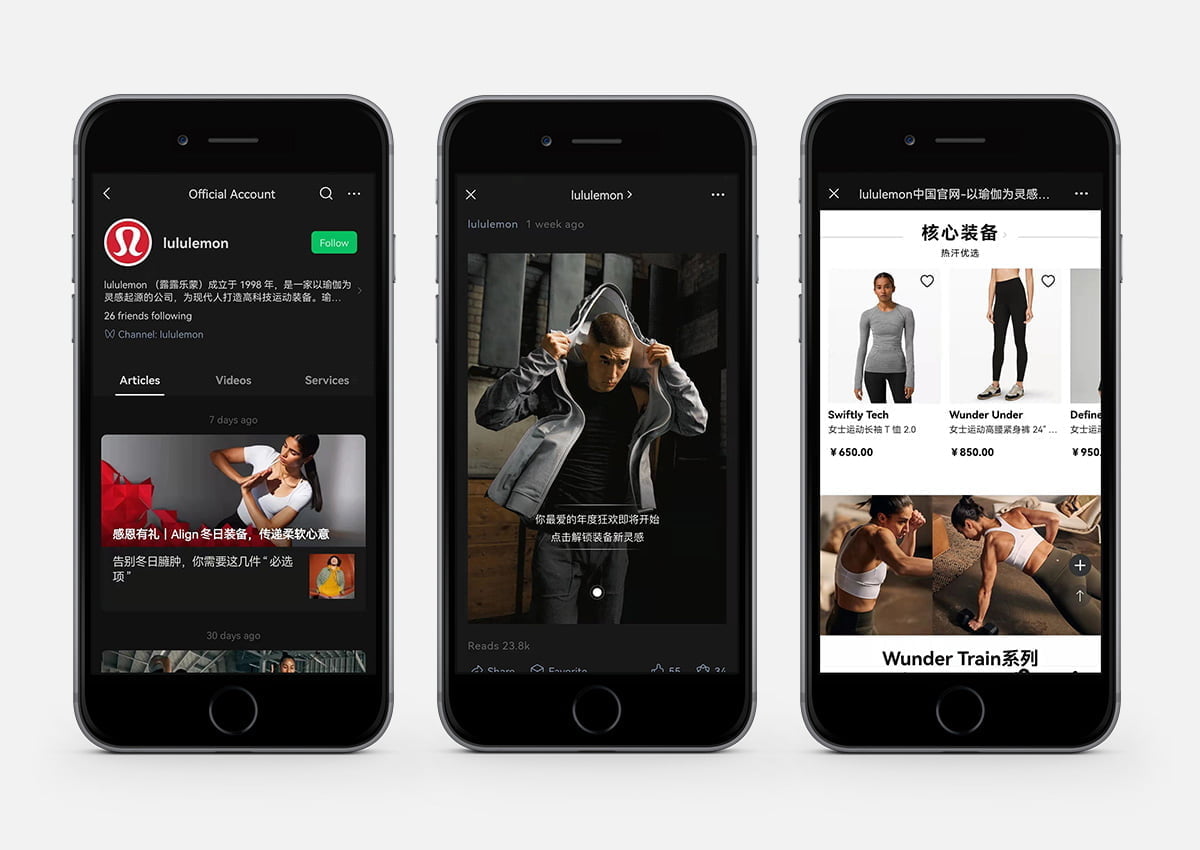

China is a massive place. Many cities of around one million people are considered small by Chinese people’s standards. When taking your first steps into the China market, you will learn that small mistakes can lead to huge national upsets very quickly due to hyper sharing over social media.
5 Guys Burgers is having a rough start in China. Many users were annoyed that a slick burger chain from the US was having so many apparent operation issues with their first China location in Shanghai including dirty floors, and ridiculously long lines. But the most devastating outcome was from underestimating Chinese consumers’ knowledge of the brand. Even though countless companies have upscaled their image when entering China, consumers were furious that the brand had rebranded as an upmarket burger joint charging double the prices of their New York based establishments creating unreachable expectations and earning them a 3.9 out of 5 on Dianping (China’s Yelp) which has placed them far behind McDonalds.
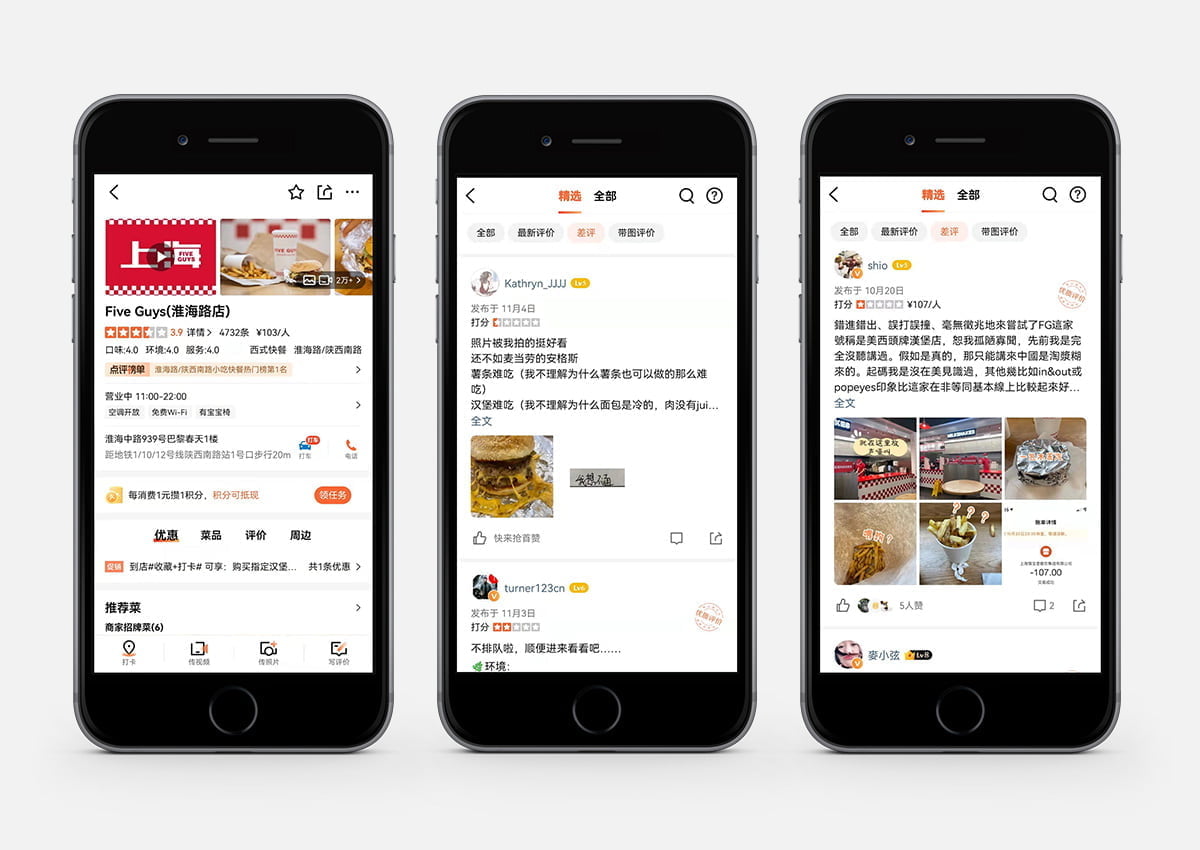
5 Guys Burgers could have had bigger issues if they had tried a multi-city launch damaging their national China image. For now, they only have to repair their Shanghai image due to their poorly executed launch. However, they have a lot of damage control to do.

When IKEA first launched in Shanghai in 1998, they found that many Chinese shoppers were using their in-store display furniture to relax or even take naps. At first, they attempted to stop the phenomenon by instructing store employees to make the rounds and ask loiterers to move along.
However, the company eventually identified this behavior as part of the Chinese consumer mentality—shopping is viewed not just as a means to an end, but as a form of leisure in itself. Ultimately, IKEA embraced the phenomenon, even setting up model furniture displays in airports and malls, inviting passersby to use them freely.
Even now it’s very common to find families spending the whole day in an IKEA showroom. The idea that IKEA is also a place for people to hangout changed IKEA’s floor planning of their stores. The IKEA canteen has become a huge fixture of their stores and many office workers head to IKEA for lunch and while there they could pick up a few items for home.
Instead of fighting the loiterers, IKEA changed their perception of this local phenomenon and worked it into their business strategy in China, to great success.

No matter what your thoughts about policy are, the reality is that many foreign based communication platforms and websites are blocked in China. Because of this there are many sites and APPs that are not known in China or accessible without a VPN. Yet many companies still use Youtube, Facebook, Instagram and other banned platforms to host their media content. The Great Firewall of China is here to stay and companies who have leaped to local Cloud technologies and social media have connected consumers with their content with little to no fuss.
Successful companies have learned the China equivalent to what they are using in their home countries. In some instances the platforms offer superior features and/or services.
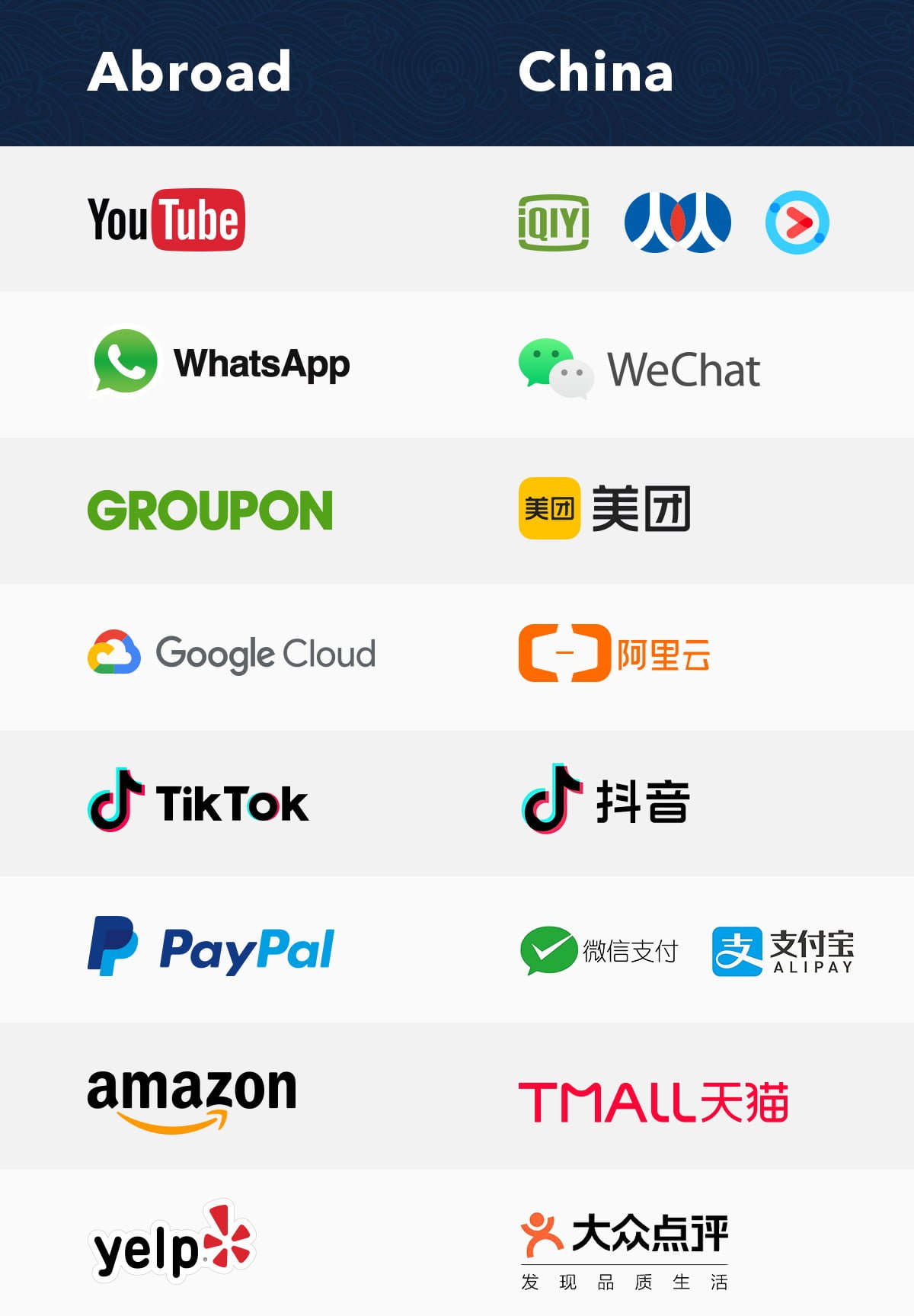
Many Western brands have partnered with Tmall, China’s Amazon equivalent. For instance, Costco relies entirely on Tmall for its sales in China of it’s Kirkland line.
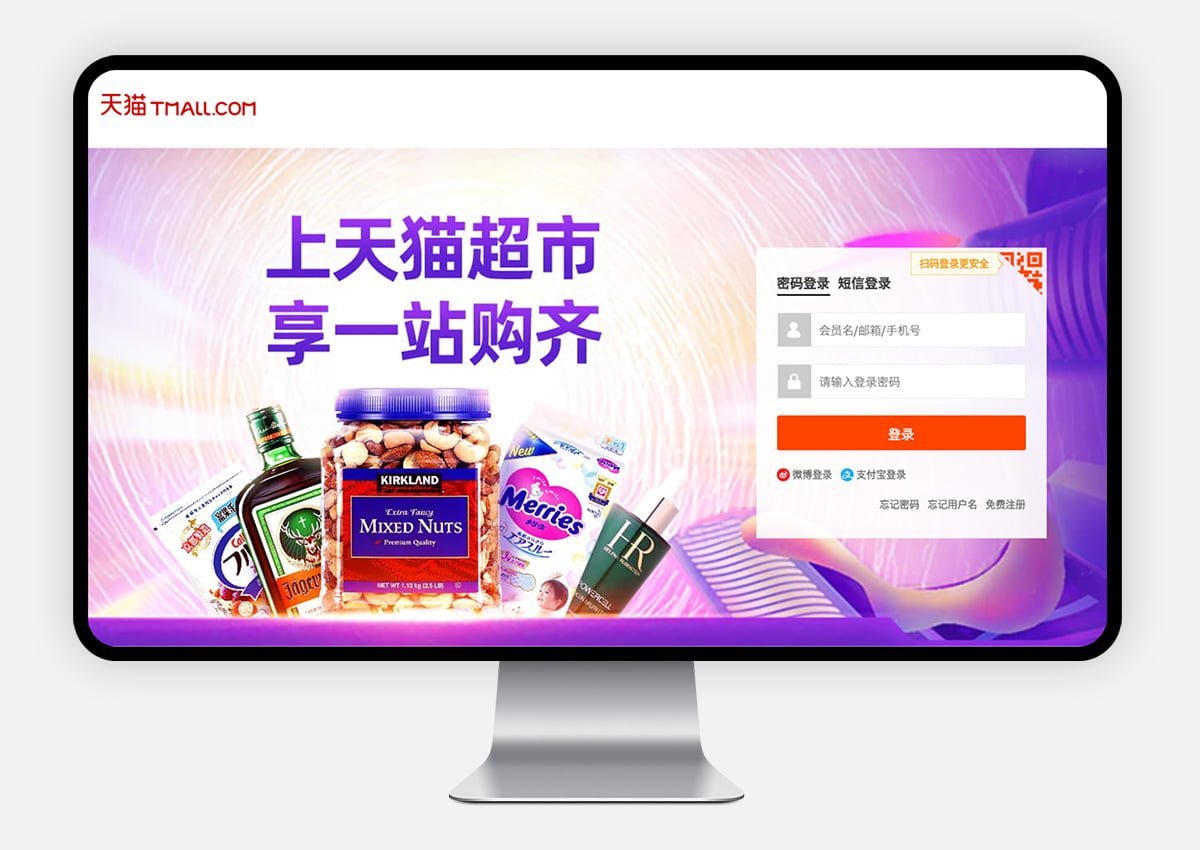

Probably the most important takeaway.
China is a complicated place, but it has a certain way of doing things that has made it a very prosperous nation. So keep your eye on the prize. Your company is coming here to access this vibrant market, so it’s best that you avoid strong political viewpoints. Even if your heart is in the right place, without understanding local cultural nuances and other societal factors, you might cause offense. As connections are so important to conduct business in China, this will cause you misery at the very least, or at the very worst lose your access to this great market for the foreseeable future.
Chinese policies can feel like they show up out of nowhere and get implemented quickly. When Didi, the China based ride sharing APP went public in July of this year, it was banned and a new policy about data security was released soon after. The resulting backlash saw Didi’s APP being removed from almost all downloading platforms in China and a government restriction on new users. China’s government is very active and acts quickly especially when they think the policy will improve society. Rather than adopt a combative stance, learn to adapt your campaigns so they align with the government’s new policies.
Some Additional Tips
Promote Family Values
The family is a very important concept, and promotion of happy families and lifestyles always do well in China especially during big holidays.
Avoid Hyperbolic/Superlative Language
To reign in harmful advertising in China, the government has banned many of the boastful practices in international advertising. This means that all marketing claims need to be factual and provable. Words like guaranteed, the best, greatest, #1, unbeatable, 100% effective, are banned on most platforms and company websites and marketing materials can be randomly checked for infractions. This can lead to fines, removal of advertisements, and costly content changes on websites.
Unfortunately the Chinese government does not always clearly state what content can get a company in hot water, so…
Use Local Resources
Fortunately, there are many helpful sources of information on Wechat official accounts such as Disabled Word Query. They have many helpful queries that tell you what words/pictures are banned but also the reasons behind it. This can help you pivot your whole campaign away from rocky shores.
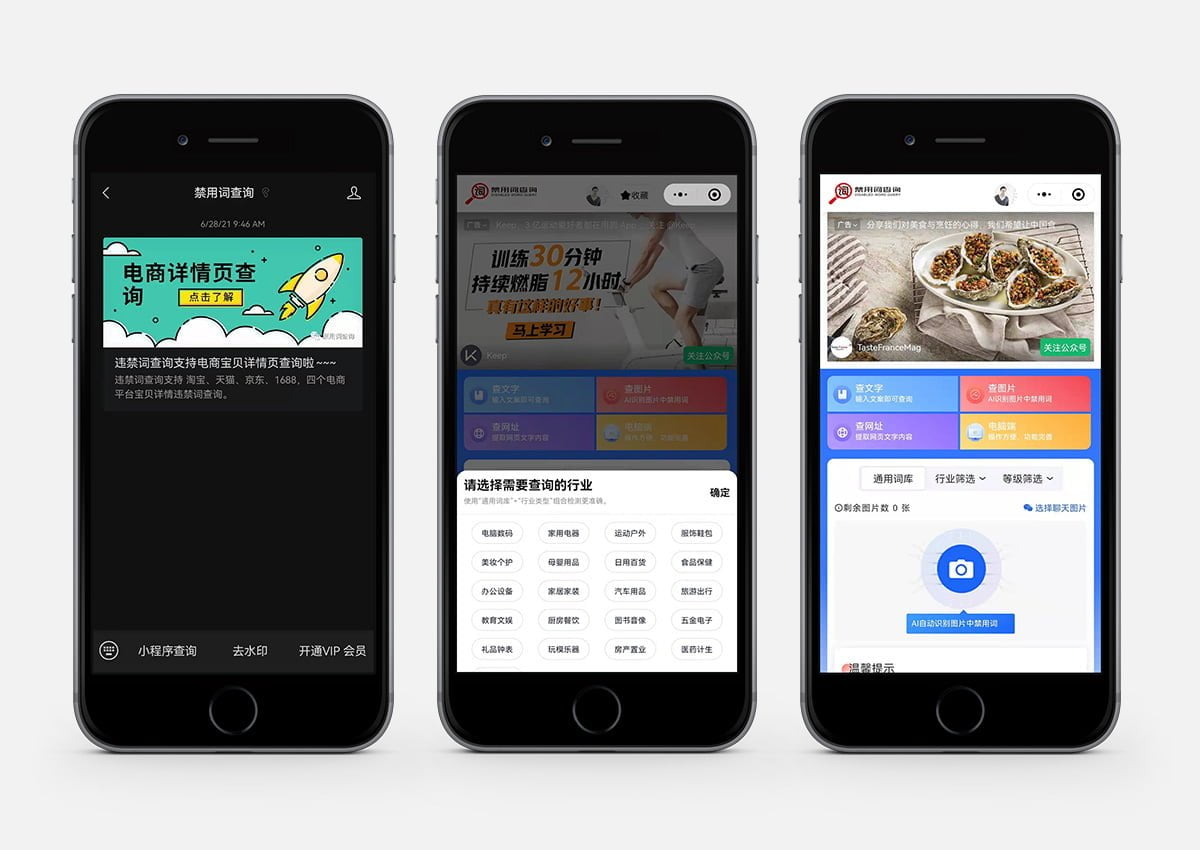
Admit You Need Help
Any successful entry into China means knowing the lay of the land and being open-minded and responsive. Rather than guessing, why not find an experienced China partner. Flow has been helping foreign clients localize their brands for over 15 years. Successful localization requires local experience.
Contact Flow for your customized localization strategy.

